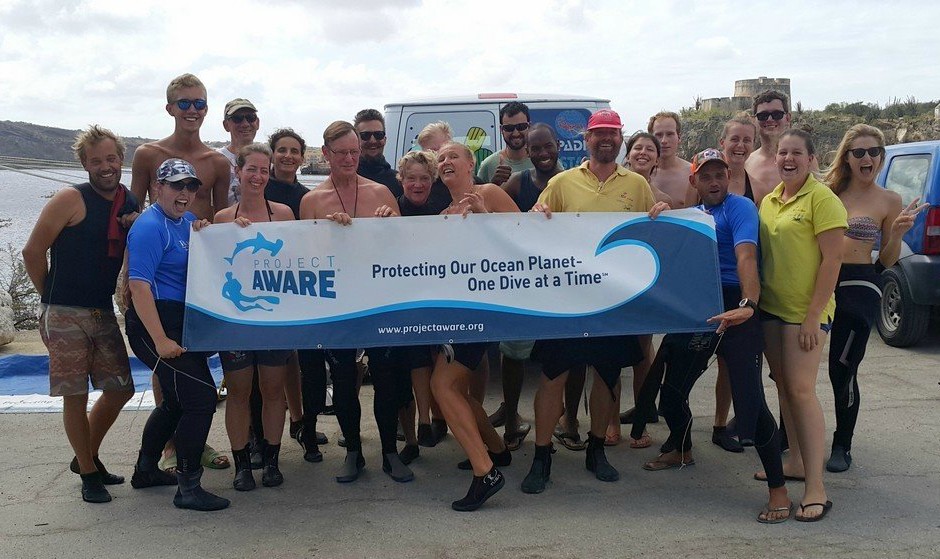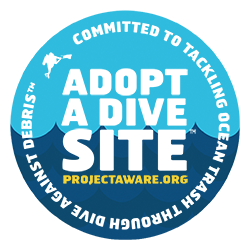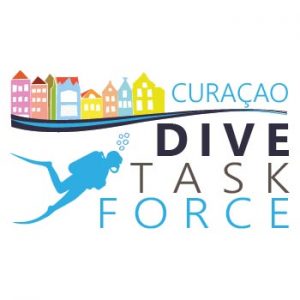Local Divers Unite to Protect Curacao’s Reefs

 Reefs worldwide are facing threats including climate change, overfishing, water pollution and marine debris from human waste like single-use plastics. While the effects of climate change must be addressed on a global scale, local communities can give their reefs the best chance of survival. They can start by reducing pressures such as fishing responsibly and reducing land-based pollution that is entering the ocean. Many Caribbean reefs, like those in Curaçao stand a good chance of surviving if local pressures can be minimized. Several organizations on the island are working diligently to help restore and protect Curacao’s reefs by tackling these issues.
Reefs worldwide are facing threats including climate change, overfishing, water pollution and marine debris from human waste like single-use plastics. While the effects of climate change must be addressed on a global scale, local communities can give their reefs the best chance of survival. They can start by reducing pressures such as fishing responsibly and reducing land-based pollution that is entering the ocean. Many Caribbean reefs, like those in Curaçao stand a good chance of surviving if local pressures can be minimized. Several organizations on the island are working diligently to help restore and protect Curacao’s reefs by tackling these issues.
Plastic pollution is affecting the oceans across the world, and some reports estimate that by 2050 there could be more plastic in the ocean than fish. Marine life like fish, birds and sea turtles can mistake plastic for food and eventually starve or become entangled and suffocate. Sadly, many islands did not take-action quickly enough and their reef systems have collapsed. Collapsed reef systems result in losses in tourism, fishing revenue, floods, deteriorated water quality, and less resistance to storms. Luckily, Curacao still has the chance to protect itself if action is taken immediately.
 That’s why divers around Curacao are leading the charge on the fight against plastic pollution. Early in 2017, the Curaçao Hospitality and Tourism Association’s (CHATA) Dive Task Force in collaboration with the Project AWARE Foundation committed to the Adopt a Dive Site™ initiative. Four members initially adopted their house reefs, pledging to conduct monthly Dive Against Debris beach and dive site clean ups. Today, this program has grown to twelve diving operations who are investing in Curacao’s future. Now, Dive Against Debris™ events span from Caracasbaai to Westpunt!
That’s why divers around Curacao are leading the charge on the fight against plastic pollution. Early in 2017, the Curaçao Hospitality and Tourism Association’s (CHATA) Dive Task Force in collaboration with the Project AWARE Foundation committed to the Adopt a Dive Site™ initiative. Four members initially adopted their house reefs, pledging to conduct monthly Dive Against Debris beach and dive site clean ups. Today, this program has grown to twelve diving operations who are investing in Curacao’s future. Now, Dive Against Debris™ events span from Caracasbaai to Westpunt!
“Scuba divers have a deep connection to the ocean and a desire to want to protect it. We love to mix the passion for ocean adventure with conservation,” says Joanne Marston, Community Engagement Manager at Project AWARE, a global movement for ocean protection.
“The community of Curacao are true leaders in the fight to protect what we love. Together dive centres on the island have united to protect their local dive sites from the onslaught of trash. They realise that conservation cannot be done in isolation – it takes the collaborative efforts of all to really make change,” Marston added.
In 2017, 47 separate clean-ups events were organized removing 1,517kg’s (3,344 lbs) of marine debris by 504 volunteers made up of locals and tourists. In 2018, due to an expanded initiative, the CHATA Dive Task Force will be organizing even more events in the hope to bridge the gap in knowledge through the Dive Against Debris™ Specialty Course and public outreach for a sustainable and a responsible Curaçao that will help inform and drive policy change.
According to CHATA CEO, Miles Mercera, “Our island’s subaquatic life is one of the many things that sets our island apart from the others in the Caribbean. So, it is of immense importance that we all work together as a sustainable community to conserve our ocean. The commitment of the Dive Task Force to the Dive Against Debris and Adopt a Dive Site Initiatives is the first step for sustaining and spreading awareness of our island’s ocean life. With the assistance and teamwork of the entire community I am certain that we can make this initiative bigger, create a sustainable change and provide the upcoming generation a healthier ecological marine life.”
If you’re a certified diver, help protect the future of Curacao’s sea by joining one of the CHATA Dive Task Force members for a free monthly Dive Against Debris™ clean-up here on Curaçao to collect/remove marine debris and report important data. Together, we are making a difference one dive at a time. Let’s enjoy our coral reefs but let’s protect them for future generations!
We Need Healthy Oceans, We Need a Healthy Curaçao, We Need You Join a Project AWARE – Adopt A Dive Site Event on Curaçao.
Our Oceans – Our Future – Our Responsibility



